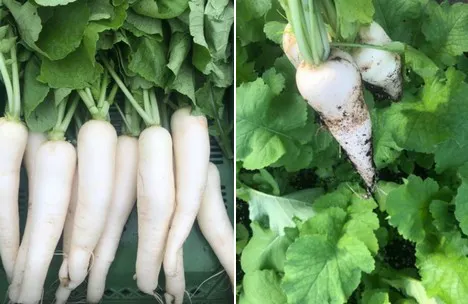As of this week, Gemüsebau Seischab from the German area known as 'Knoblauchsland' or 'garlic country' can harvest the first radish from its greenhouse. "We raise the product ourselves in Paper Pots and plant the seedlings in the greenhouses in week 1. Currently, radish is sold mainly at the wholesale market. I hope that we can also supply the retail food chains again, although the demand in food retail has been declining for some time," Managing Director Stefan Seischab tells us. The company grows radishes on 1500 square meters of greenhouse and 1.5 hectares of open field.

Strongly fluctuating interest in radish
"During the pandemic, supermarkets were still quite skeptical at the start of harvest whether they would be able to sell the greenhouse radish at all, which is why it was not listed. It was only with the start of outdoor produce that the product was then included again. It seems to be mainly the older generation that still has something to do with radishes, while the younger generation tends to go for red radishes," says Seischab. Prices have been stable for years, he said, with only minor fluctuations.
The produce is sold to the wholesale market, through which it is then resold to restaurants, farm stores, and various retailers. "The radish, however, is marketed by us directly to supermarkets. We also sell some of our radishes through the Frankengemüse producer cooperative. In times when the radish cannot be sold particularly well, it is delivered in boxes as a second choice, for example, via the company 'Rübenretter.'"
Good demand for cucumbers, subdued interest in rhubarb
"In recent weeks, demand for cucumbers has been very good. We also grow this crop in our greenhouses. As the harvest in Spain was extremely poor, we were able to sell significantly more. However, this week the Belgian and Dutch supply came on the market, whereupon demand dropped rapidly, which is also clearly reflected in the prices.
However, last year's reluctance to buy was also evident in products such as rhubarb. Seischab: "Sales were very good at Corona, but after the pandemic, sales have again collapsed completely. Rhubarb is mostly processed into cakes or sorbet and is more of an indulgence product. Therefore, the product is not exactly bought for everyday use." Leek onions, however, continue to go on continuously well.
News from Knoblauchsland
The situation for vegetable growers in Knoblauchsland is very tight right now, he said. "At the same time, both our farm and other farms in the immediate area have the advantage that we can still count on ongoing contracts with the Farmers' Association, which continues to count this year. Because of this, we have comparatively favorable conditions for gas."
Currently, Seischab is in the process of building social housing to make room for more employees. "In my peaks, I simply need more seasonal workers. We have rented a container for this purpose, but that is no longer sufficient by a long shot. Currently, I'm growing pak choi again this year for a large food retail chain, which will be offered again in week 17/18."
 For more information:
For more information:
Stefan Seischab
Gemüsebau Seischab
Am Knappsteig 41
90427 Nürnberg
Tel.: 0911 936910
Email: info@seischabgemuese.de
Website: www.seischabgemuese.de
Instagram: @gemuesebau_seischab
